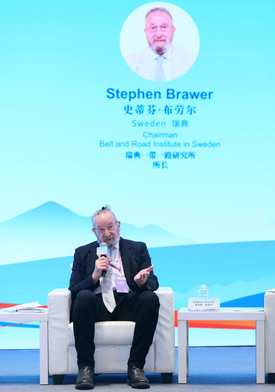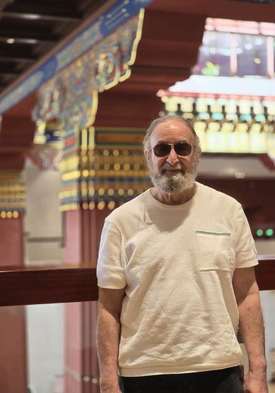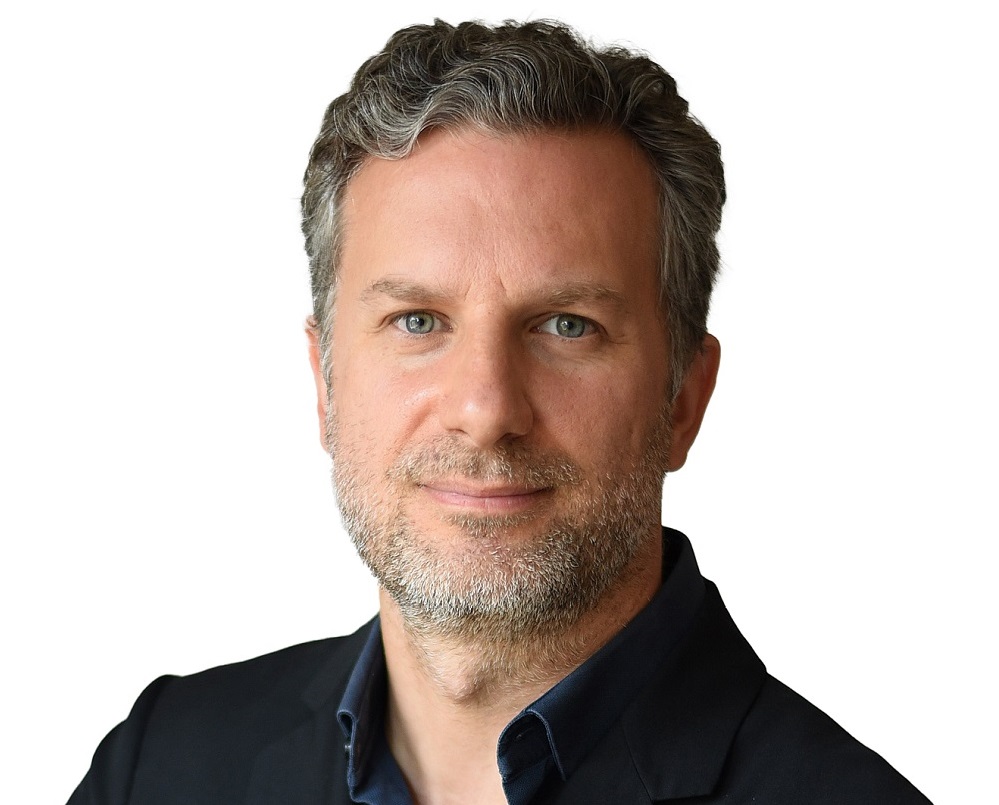We must recognise that a new economic order based on the eradication of poverty is the solution
Let's break out of colonialism!
„Neo-Malthusian thinking is one of the main causes of wars and conflicts, and even of the possible outbreak of a global nuclear war. Its goal remains to keep the world colonial and imperial” Stephen Brawer, a New York philosopher and president of the Belt and Road Institute in Sweden, told Magyar Demokrata.David Bencsik’s interview


Mr Brawer, as a multi-centric new world order continues to unfold before our eyes, the term „globalist elite” is often used to describe the challenged world power. How would you define this group, who are these people and where do they come from?
Thank you for the opportunity to share my views and insights with you. The basic idea that you are referring to is often referred to as a unipolar world order or a rules-based world order, which has been a dominant factor in the global power structure. At the moment I think it is very clear that the situation is moving towards a very dangerous situation where the world would be again divided into blocs, as it was at the time of the so-called Cold War. I think if we work hard we can hopefully avoid that. In reference to the question of who these elites are, there is a power structure that has a historical basis. Usually what I’ve been referring to requires the need to understand the longer sweep of history. In that context, I think it is very important to identify the idea of what is actually the Anglo-American power structure, which has basically been the dominant power since the end of the Second World War. That is the essence of what represents the international power elites that are driving this global Empire. The Empire is a global power structure. It is not a local power structure and the Anglo-American power structure is the modern form of the British Empire established at the end of the Second World War. It is often referred to presently as the special relationship between the US and Great Britain.
Didn’t Churchill and Roosevelt create the new world order together?
During the Second World War there was a definite policy fight between Franklin Roosevelt and the British Prime Minister Winston Churchill. They agreed only on the need to militarily defeat the Nazi war machine but they did not agree on what world order would be established at the end of the Second World War. It became very clear that there was a very different idea of how the world should be reconstructed. Roosevelt talked about getting rid of the colonial powers, not only the British but the French and the Dutch at the end of the Second World War, and building a different kind of economic order. This is well-documented in the book by Roosevelt’s son, Elliot Roosevelt, entitled “As he saw it”. This was conceived as the Bretton Woods system. This was the basis for a new, stable economic structure,oriented towards development rather than looting. It was a very different idea from the old colonial system. But Roosevelt unfortunately died in 1945 before the end of the war and that gave Churchill a free hand to implement what he often referred to as „With British brains and American muscle we will continue to rule the world”. What that meant to Churchill was the continued power of the British Empire, which historically was not just a post-war phenomenon, but a phenomenon going back in history to at least the 1700s. That imperial power structure has changed in form over time but not in its fundamental character.
This is an almost embarrassing disdain for American cognitive abilities.
Churchill was basically emphasizing that with British sophistication and intelligence in the broadest sense, together with American military power, they would continue to rule the world, as the British intended. There was, earlier, a debate in 1944 as to who would be Roosevelt’s vice-presidential running mate. Since Roosevelt was very ill, it would play a very important part in who would become the next President after Roosevelt’s death. It ended up with Harry S. Truman becoming the next President. Truman was not a true American patriot, but rather unfortunately a puppet in the hands of Churchill. This guaranteed that after the Second World War there was a continuation of the Anglo-American special relationship, which was a continuation based primarily on world domination. In addition, it is important to understand the thinking of this so-called global elite. They are hard-core neo-Malthusians.
Can you explain what you mean?
Neo-Malthusianism is based on the idea that the amount of resources available in the world is not sufficient to allow population growth and development. This originally goes back to Thomas Malthus, who was a proponent of empire at the end of the 17th century, and he explicitly had a doctrine that this ability of society to provide resources, food and other things for a growing population was not possible. This justified the idea that there was an elite or privileged group that had to maintain its own privileges and benefits at the expense of the vast majority of the world’s population. Now, neo-Malthusianism has become part of the dominant nature of Anglo-American policy through institutions such as the World Bank, the IMF, and other institutions like the Bilderberg Group and the Trilateral Commission. These are the arms by which this imperial policy is carried out. This is what is actually dominating the thoughtprocesses that are struggling to prevent the world from moving out of this old post-colonial and imperial policy. It is this neo-Malthusian thinking that is a primary cause behind the danger of war and conflict and even a potential global nuclear war. to keep the world stuck in this colonial and imperial policy. This is what is creating the danger of war and conflict and even the threat of a global nuclear war. This increasingly dramatic world-wide tension is therefore the result of the old geopolitical power structure desperately trying to assert its dominance against the global majority of nations that are choosing to move in a new direction. It is the direction of a multi-polar world order and not a uni-polar or rules-based order.
What does this imply? Peaceful transformation or world war?
The challenge and the solution for the world is the ability to replace the rotting old power structure with a new more vital and equitable global economic order.
Has China really stepped up to the plate and is it rightfully demanding its proper place in shaping world policy, or is this more wishful thinking on the part of those who yearn for an alternative to the Anglo-American power structure?
There is no question that China has emerged as a global economic power. In principle, if one looks at China’s history as an evolving dynamic, this is not something that just occured in the past and has no relation to the impact on the present and the future. China was under the gun of British cannons in the middle of the 18th century, what is also known as the Opium Wars, which was and is known in China as “the Great Humiliation”. Before that, China had been the most advanced civilization on the planet in the 16th-17th centuries or perhaps earlier, even in comparison to European civilization. So what is happening now is that China is opening up with the decisions and policies under Xi Jinping. They have transformed the circumstances of an impoverished nation into one of the most successful economic transitions in the history of the world. They still call themselves the world’s second economic power, but in reality, if you look at the physical economy in terms of real production, real infrastructure, China has emerged and taken its rightful place as one of the great civilizations to a leading role in the world. They are continuing through the Belt and Road Initiative to lead the developing world, the so-called global majority, into these new economic arrangements that are definitely of a very different character than the old colonial system. It respects the sovereignty of nations. It allows these countries that are working with the Belt and Road to choose voluntarily to participate or not.
So is China a peaceful power?
They don’t use force, as the old colonial powers did. They are inclusive, willing to work in an open capacity with the world at large, not only with the developing countries, but hopefully eventually bringing the European nations, and even eventually the US and the UK into these new structures. China, because of its great history as a civilization, as a people, has initiated a process that is changing the character of the global world situation. This is what Xi Jinping calls “A Community for a Shared Future for Mankind”.
The response of the Western mainstream media is that the BRI is a debt trap, they accuse China of putting an unbearable burden on the shoulders of poor countries.
This is a tactic of Western power politics. They first call it the debt trap. They have also recently called it de-risking and overcapacity, meaning that China is producing too much for its own consumption and therefore opening up markets in terms of international developing countries and the world economy. The problem is the Western mainstream media is acting as a microphone for the Anglo-American power structure. Most of the major news media in the US and the UK, which represent the power structure and which are basically in line with the kind of thinking that says we will not give up our control and our power despite the opening up of world history to a better alternative. The Belt and Road Initiative is the platform for that kind of new alternative. Now there have been times when both the US and European nations had a very different idea of economic thinking than this global imperial policy. Unfortunately, post-World War II, history has been dominated by this international financial system that is speculative and neoMalthusian in character. It is the so-called floating dollar system that has been put in place to protect the power of this global empire. They don’t want to give it up and they don’t want to give up global influence. China is offering the global South in particular the opportunity to rise up, to eradicate poverty and to establish a modern and successful development policy for the future. So these Western tactics have no substance, the accusation of a “debt trap” is mainly used to influence the Western population who do not understand the fundamental aspects of economy. The Western elites fear a change in Western thinking that would mean joining hands with China and the Belt and Road Initiative. This would lead the world out of global poverty and into a new paradigm representing the common interest of mankind.
What is China’s vision of Europe and how does Europe see China?
Europe can offer China a great deal. If Europe would break free of EU dictates and recover their sovereignty, Europe could greatly contribute to the challenge of eliminating global poverty and helping global economic development and modernization. The problem has been the EU, which is structured in such a way that it oversees and neutralizes national sovereignty. It tends to play more or less a subservient role to what the policies of the Anglo-American empire and NATO have been doing, working hand in hand. This creates more of a problem, there is still a certain amount of bilateral trade between Europe and China that is not being stopped, mainly because European economies are totally dependent on their trade and cooperation with China. Hungary and Serbia, led by Prime Minister Orbán and President Vucic, are not fully following the EU agenda on various fronts, and that has meant that there is more of a potential opening in Europe as a whole. Some European countries are embracing a more sovereign position and are beginning to break away from this dominant picture and recognize that their own sovereign interests are to cooperate and embrace certain aspects of the BRI and infrastructure development. One example is the development of the railway system between Budapest and Belgrade, which is on the way for the kind of infrastructure that will completely change the parameters of productivity and development in these two countries. So if reason and intelligence are the primary factors in decision making, the world and Europe will go in that direction. That would mean that the thinking of the EU at the moment will more or less disappear or go into the dustbin of history. Working with China is clearly something that represents European interests. It’s the same in Sweden, but the Swedish political power structure presently follows the US and NATO and doesn’t yet recognize the benefits of working with the Belt and Road Initiative.
How would you describe the key players in the changing world and what role do you think they will play?
There are different thought processes behind the thinking and decision making that separate the EU, the US and the UK, from the thinking of Russia and China, and India. This formation that is openly being expanded, the BRICS, was started 10 years ago, at a similar time as the Belt and Road Initiative was launched. It’s built around the idea that other large and powerful sovereign nations like Russia, India and China have interests that are not necessarily aligned with the dollar-based system. They are rejecting the ability of that dollar-based system to impose sanctions on countries that do not follow the lead of the Anglo-American power structure. Instead they would follow certain policies that are in the interests of the great global majority. There is an element in BRICS that it is in the interest of the world, not just the participants, but also in the interest of humanity as a whole. They would work together to cooperate on international development. Right now, the thinking of the decision makers of the global West is not in line with the emergence of BRICS. Beyond the original members of BRICS, it now includes the UAE, Egypt, Ethiopia and Iran that have joined it and another 56 other countries including Turkey which is a NATO country, which is now saying they wish to join the BRICS.
Could the rise of BRICS trigger a dangerous rivalry?
BRICS is working for economic stability and respect for national sovereignty. The danger is the use of force and conflict, which unfortunately is in the picture at the moment, and the conflicts and developments in Ukraine and Gaza, are the instruments of the power structure of the Anglo-Americans and NATO.
You mentioned the civilisational paradigm shift several times. Is it good for us?
The expansion of NATO represents a grave danger to the best interests of humanity. But if we could resolve this in a way that was more representative of the fundamental economic interests of not only India, China and Russia, but ultimately the EU and the US and other parts of the globe, then humanity could come to its senses. We could have a common perspective that would be in the general interest of humanity as a whole. Instead of the neo-Malthusian idea that the interests of the privileged and the powerful are more important than the interests of the less privileged, Europeans should be working to join hands with the Belt and Road Initiative. Ethnic discrimination in the form of racist policies against Africans, against Asians and South Americans, must come to an end. The United States should recover its positive traditions, which as an American citizen born and raised there, I know have existed previously. There was a very different history, which was more reflected in the time of Franklin Roosevelt. He had a policy called the Open Door Policy, which was how to work together with the South, at that time Brazil and other leading countries of South America for a kind of Belt and Road Initiative. He intended to build steel factories and implement development policies that would eliminate poverty. That policy has unfortunately not implemented at the end of the war. We are now in a period where many countries in South America are turning to China, because this is the direction that developing countries need to take in order to have a better future for all their people, not for the richest, but a general policy that represents the common good.
More and more people are pointing to Confucius as the one on whose principles modern China is built. Do you agree?
This has a history in Chinese civilization through the thinking of Confucius, which was and is very clearly a big part of Chinese civilization. I think that’s where the developments in China have their true origin. The opening up and the BRI have, emerged after the establishment of the PRC, but China has a much longer history than even Europe and a much richer one in many ways. The world needs to know and share this as a means of bridging our civilizations. If we would think in these terms, and this is my personal commitment and mission as Chairman of the Belt and Road Institute in Sweden, we could move and establish a direction for humanity that would be very, very different from what we see today in terms of the danger of war and conflict. Our young people would begin to have a much more optimistic view of the meaning of their lives, which would include a more active and engaging cooperation in world affairs. This is what is called people-to-people communication. I personally think that humanity is now in a position to see a great change.
European societies are drowning in the challenges of mass migration. How does the new scenario you have outlined relate to this question?
When it comes to demographics, whenever you look at the problems of immigration, which have been seen as a problem in Europe, it is mostly because these affected countries where the immigration comes from are ultimately impoverished and war-torn. If Africa had the kind of infrastructure modernization that is now being openly proposed in the Forum on China-Africa Cooperation, the ability for Africans to live happily in their countries would be the basis for Africans to come to Europe as tourists, not as refugees. The problem is that when you have a system, which we have now, the old dollar-based system, which tolerates and even enforces poverty, then you’re going to have a desperation that leads people who are in those circumstances to do almost anything to escape. Survival is an instinct that all human beings have. If you do not allow people a good decent standard of living, not just charitable food parcels, but actual real development that allows the African continent and the nations of Africa to develop and modernize, then you eliminate that desperation and you eliminate in the process the kind of urge for people to survive by escaping desperate and horrible conditions. Instead you have a world structure where people visit each other as friends and tourists. That’s the direction we have to go. If you want to eliminate the problem of refugees and such issues that are being discussed and debated in Italy and Hungary especially, then there should be a recognition that a new economic order based on the elimination of poverty is the actual solution to this kind of problem.

